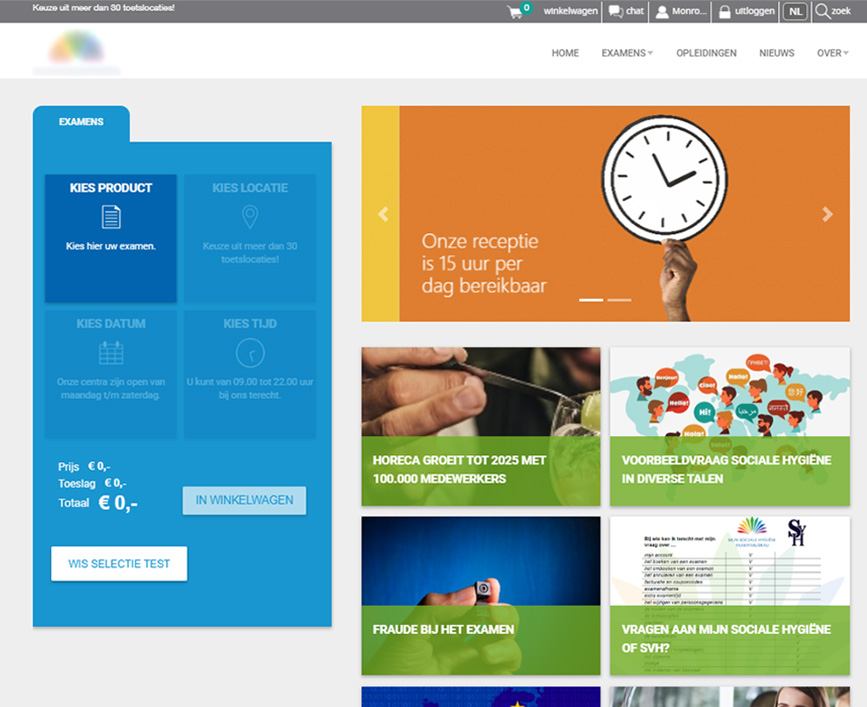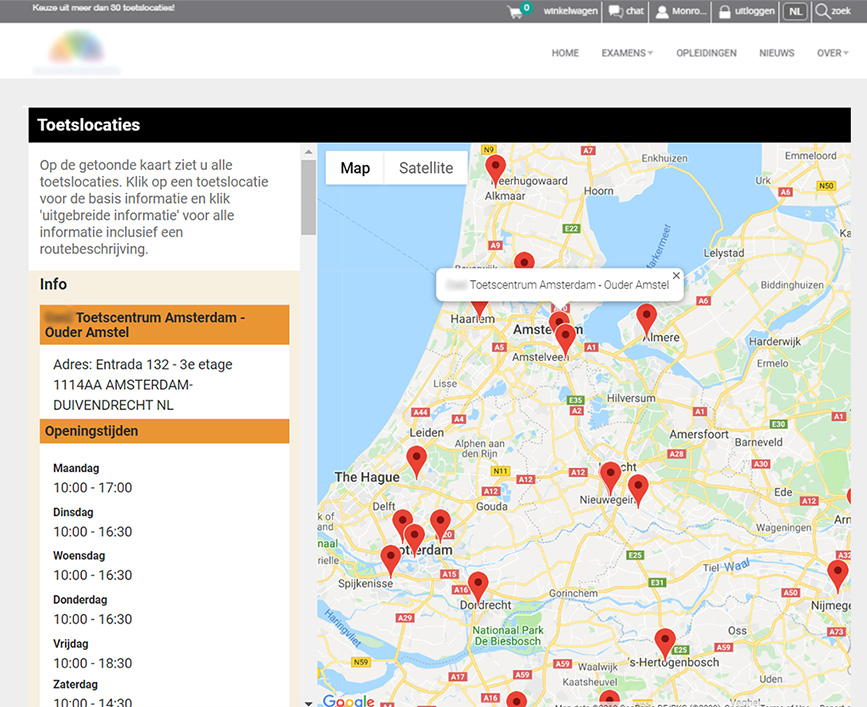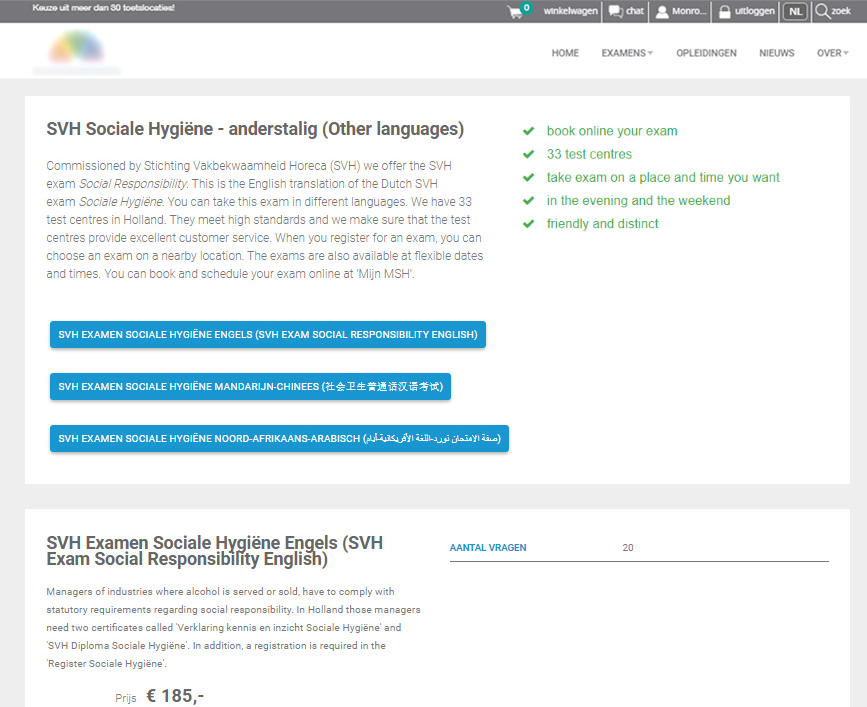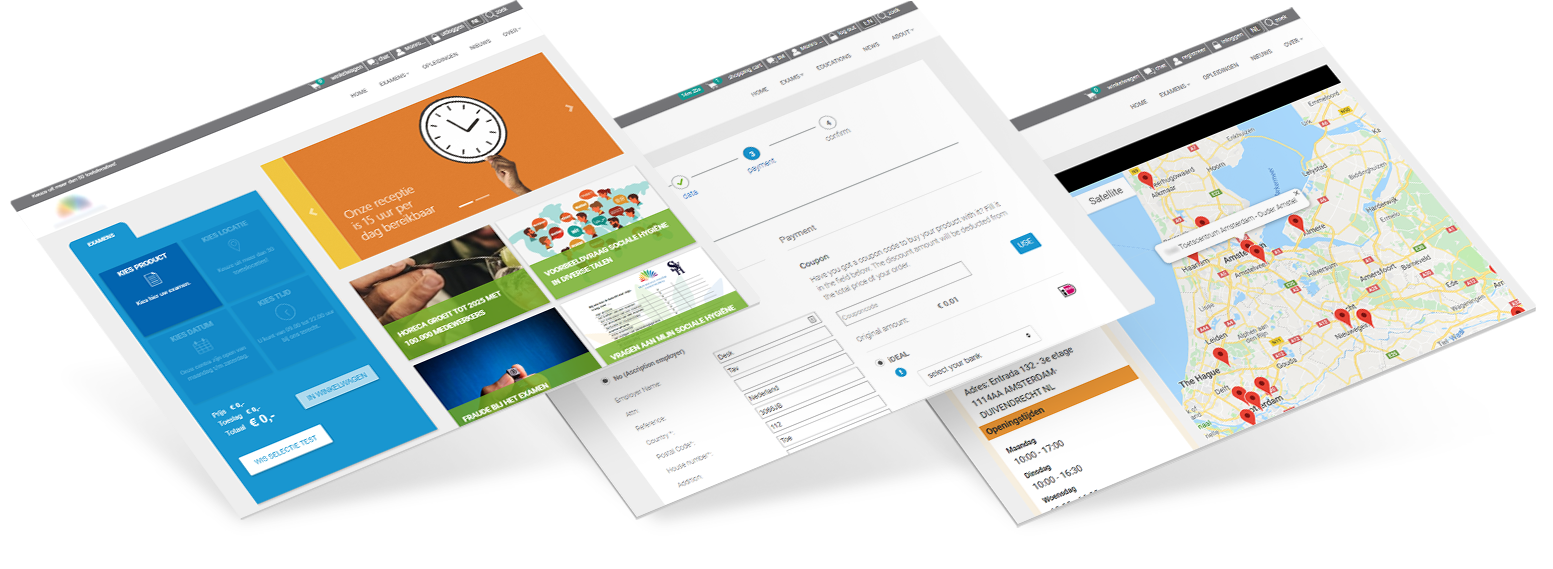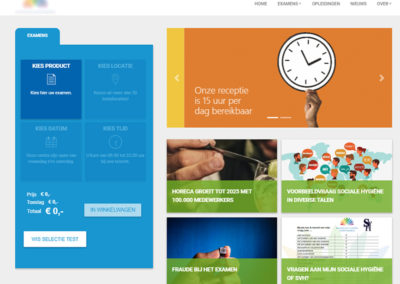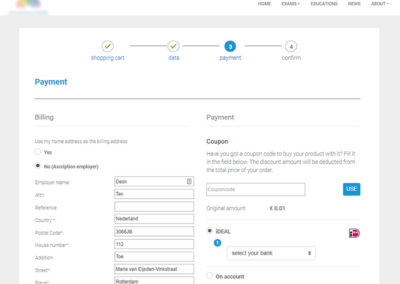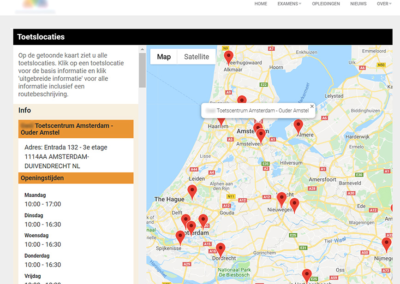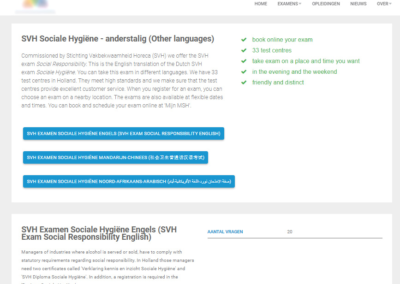Exam Booking System
Our partner is a Netherlands examination agency that provides comprehensive services from exam development to registration of candidates and analysis of results.
The company has developed its own exam booking system. It allows to choose exam date and location, make a payment online and manage the process via a single pane of glass.
The scope of the project was to support the existing system and to develop a modern and attractive interface for end-users designed as an online marketplace. As well we had to refactor legacy code and partially move to microservices architecture.
Integrated booking tool to support automated exam process
| Online access to information on 33 Test Centers | Capacity to manage 5000 exam candidates per week |
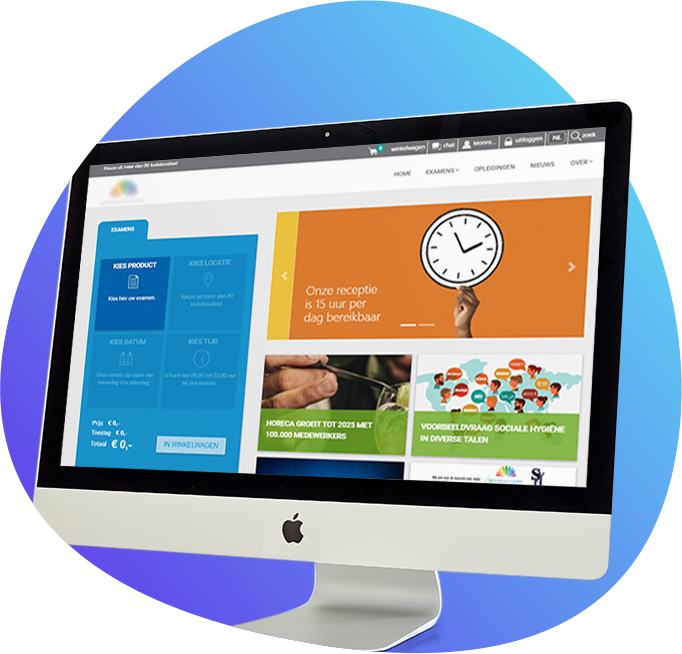
Integrated booking tool to support automated exam process
| Online access to information on 33 Test Centers | |
| Capacity to manage 5000 exam candidates per week |
Project Highlights
4 microservices
was developed to refactor legacy code
4 e-assessment
systems from 3rd party vendors were integrated into a single ecosystem
Customer developed Exam Booking System from scratch many years ago. They hired in-house development team consisting of several Java-developers, testers, product analysts and project manager.
Team started to build an application in Java. Exam Booking System has two separate interfaces. The interface for the system administrator allows to control the system, change the configurations and manage user data. Another one is an end users interface with access to personal account and marketplace of courses and tests.
To speed up the frequency of feature release, they decided to develop on a low-code platform with the help of 3rd party vendor. Development on a low-code platform has a number of limitations, so the technical debt of the application was gradually increasing.
Business requirements for the application grew fast, so the company needed additional manpower. Consequently, the customer was looking for Java-developers to make a substantial redesign of the system.
At the first workshop, NRGSoft team understood the client’s needs and provided suggestions to make the product more efficient and easy-to-use.
Communicating with the customer we shared a lot of insight on how to improve UX of the platform and how users will benefit from changes.
As expected, we faced problems with legacy code which limited the possibility of implementing all features requested by the customer.
After conducting own analysis of future business needs, NRGSoft team proposed the optimal solution to overcome technical debt. And we started to design a new microservices architecture organized around business capabilities (e.g. Ordering, Payments, etc.)
NRGSoft continues to work with the customer on this project and so far has already implemented 4 microservices and created a user-friendly design of online marketplace that meets modern trends.
Case Overview
 Customer Location Customer Location |
Netherlands |
 Industry Industry |
e-Learning |
 Partnership Period Partnership Period |
2017 – present |
 Methodology / Approach Methodology / Approach |
KANBAN |
|
Delivered solution
Microservices Architecture
- Isolated
- Independent
- Self-contained
Customization Capabilities
Modular interface with adjustable visualization and set of features for individual customer
Designed E-mail Service
Easy message personalization, template creation and editing
Embedded APIs
Seamless export of exam results to the customers’ systems
Integration with e-Assessment Solutions
Ability to pass the exam using 3rd party solutions, like Moodle or Cirrus
Integration with Online Payment Solutions
Secure payments via Paypal, bank cards, coupons, or using iDEAL
Integration with Help Desk Solution
Quick communications with Support Service via web messenger
Implemented features
E-commerce features
Catalog of available exams
Access to account details
Online shopping cart
Date and location selection
Online payments
Chat with customer service
White label solution
Organizations can put their own branding, color scheme and choose the list of required features
Certificate generation system
The system automatically generates a certificate based on the results of the exam
Content management
Administrators have extended content management capabilities, including exam creation, definition of payment methods, setting the date and location, etc.
Access to candidates’ database
Administrators can analyze comprehensive information about candidates and customize the proposal based on this data
Notification system
Ability to print questionnaire form, answer the test with a pen, scan it and send to the system
Candidate dashboard
The system displays upcoming/passed exams, exams history, invoices, and allows to edit customer profile
Have similar project to implement?
Our solutions facilitate digital journey of your customers.
Just fill out the form and we will show you how to build user-friendly e-commerce platform

